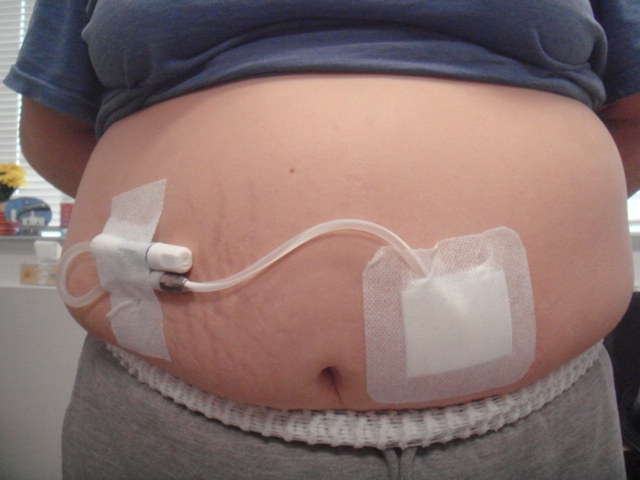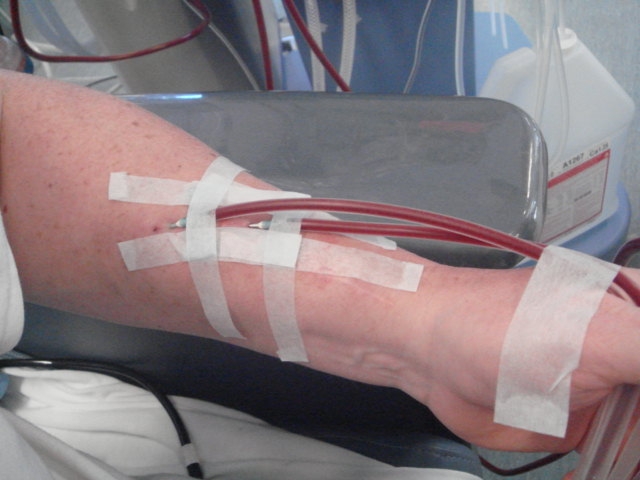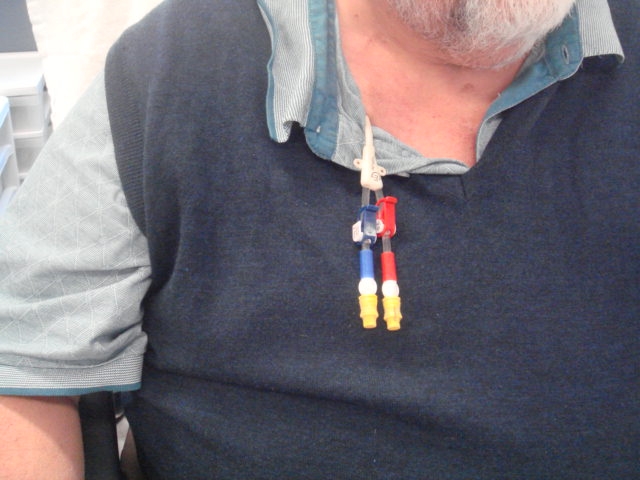No dialysis or transplant.
CKM is a treatment option for managing kidney failure. It involves:
- Treating symptoms
- Preventing or managing problems
- Protecting remaining kidney function
- Psychosocial care
- Helping plan for the future
CKM does not include dialysis, but it does include all of the other parts of kidney care and support.
The goal of CKM is to live well without dialysis.
Click link to learn more about CKM.
Dialysis is a medical treatment that does some of the kidneys’ work to remove toxins and water from your body. It will not cure kidney disease or stop kidneys from getting worse. Dialysis will not treat other medical problems like diabetes or heart conditions. It requires a great deal of time and effort. Patients' experiences vary widely. In general, the healthier you are, the more likely you are to find it helpful. There are two main types of dialysis.
Watch this video to learn more about dialysis and to see how it actually works:
Peritoneal dialysis
This type of dialysis happens inside your body. Fluid goes in and out of your belly through
a tube. Clean fluid goes in, fluid with toxins is flushed out. You can do this at home.
Hemodialysis
This type of dialysis happens outside your body. A machine filters your blood and then returns
it to your body. Hemodialysis is usually done in a special dialysis unit in a clinic or hospital.
Many factors affect how you will feel with CKM or dialysis such as other health problems and your overall health. The following section of this tool will help you determine how CKM or dialysis may benefit you personally.
Many factors affect how long you’ll live with CKM or dialysis. You may have weeks, months, or years on either treatment. Some factors that affect how long you’ll live include:
- your kidney function
- other health problems (e.g., diabetes, heart disease)
- your lifestyle (e.g., weight, exercise, diet, blood pressure)
- your overall health (physical and mental health)
The following section of this tool will help you determine how CKM or dialysis may benefit you personally.
No dialysis or transplant.
You won't have the side effects or problems that you would have from dialysis.
Dialysis risks include low blood pressure, muscle spasms, infections, abnormal heart rhythms and low levels of protein in the blood.
Peritoneal dialysis
There are fewer problems with low blood pressure and muscle cramps compared to hemodialysis,
but greater problems with low levels of protein in the blood.
Hemodialysis
Some people feel unwell during the dialysis treatment (4 hours) and most people feel tired
and washed out for 6-8 hours after treatment. There are more problems with low blood pressure
and muscle cramps than peritoneal dialysis.
No dialysis or transplant.
You are in control of your own time. There are no regular treatments.
Peritoneal dialysis
Peritoneal dialysis needs to be done
every
day. The procedure takes 30-60 minutes and is done 4 times a day. You can also do it overnight
while you sleep (8-10 hours) by using a machine. You can fit the dialysis around your
personal schedule.
Hemodialysis
Hemodialysis is done
3 times a week.
Each treatment usually takes 4 hours.
The time spent in the dialysis unit will be about 5-6
hours. This does not include travel to and from
the dialysis unit. You will be given a fixed
appointment. You can request changes, but it will depend
upon availability and your dialysis needs.
No dialysis or transplant.
No surgery is needed.
You will need surgery to create a dialysis access. This will most likely be noticeable, but your clothing will usually cover it.
Peritoneal dialysis
A flexible plastic tube will be placed in your belly to allow fluid to drain in and out.

Hemodialysis
You will have surgery on your arm to connect an artery to a vein, which makes the vein grow
large. This is needed so two large needles can be placed into it while you are connected
to the dialysis machine.

If this surgery is not successful or possible, a flexible tube will be placed in your neck.

No dialysis or transplant.
It is recommended that every 1-3 months you have a check-up with a doctor and/or other members of your care team to monitor your health. Community resources such as home care can be accessed for you. Between visits you can call your team with questions or concerns.
Between visits you can call the kidney care team. The team includes a kidney doctor (nephrologist), nurse, dietician and social worker.
Peritoneal dialysis
You will do your own treatment at home. You may need the help of family or friends.
Hemodialysis
Specialized medical staff at the dialysis unit will do the treatment for you.
No dialysis or transplant.
You won't need special training.
Peritoneal dialysis
You will need 1-2 weeks of training.
Hemodialysis
You won't need special training.
No dialysis or transplant.
Your medical team will offer advice on diet and fluid intake. If you prefer not to change your eating and drinking habits, just let the team know.
Peritoneal dialysis
You will have many food and fluid restrictions.
Hemodialysis
You will have many food and fluid restrictions.
No dialysis or transplant.
Your medical team may recommend some home monitoring equipment such as a blood pressure machine, but it's optional.
Peritoneal dialysis
Equipment and supplies are provided. You will need to have room in your home to store these
supplies and equipment.
Hemodialysis
Treatments are done at dialysis units. They have all the necessary equipment and supplies.
You can change your mind. All options may still be possible.
